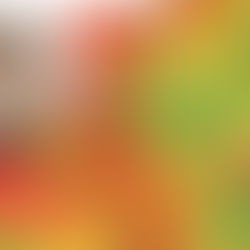Livia Rita's 'Fuga Futura': Diving Heart-First Into The Future
- Bianca Layog
- Oct 19, 2022
- 4 min read
Updated: Feb 4, 2023
Video by Livia Rita on YouTube
7th October marked the release of Livia Rita’s debut concept album Fuga Futura: the most recent installment in a series of projects by the artist, who describes themselves as an “emerging singer, musician, alpine witch, climate activist, designer, choreographer, film maker and visual artist with an inexhaustible devotion to a progressive way of thinking”. In this album, Rita shows us what they believe the future should look like. The album’s interest in crafting its own world reminds me of some of their other projects, most notably Glitches of Futura and Creature Metamorphosis among others, all of which were physical exhibitions that took place in the real world. Unlike these exhibitions, music is intangible. Upon listening to Fuga Futura, though, you’re reminded that the future can be within reach—if you would only dare to move towards it.
The sound of the album is experimental; it features the typical sounds you’d expect from the future, the kind you’d find in a sci-fi movie. Most importantly, it’s all-encompassing, immersive. That’s why 'Just Happier' is a fitting opener for the album. It’s a song that balloons, a purposeful reaching for what’s beyond.
A standout track on the album is ‘Heart Tattoo’, which Livia Rita has described as a “queer love spell”. The singer’s vocals particularly stand out here, and the song features one of the album’s more melodic tunes. “Baby, I want you tattooed on my heart”, Rita repeats at the height of the song—the culmination of an ascent that is as beautiful as it is surprising. It’s as if we’re being told that regardless of what the future holds, love will be at its centre. There are parts of this song that are familiar, like the arms of something you know and love, among an otherwise foreign, futuristic sonic landscape. It’s such a gem.
Rita infuses the next track, ‘Sunscar’, with a little jazzy twist. Their vocals here remind me a little bit of Mitski’s ‘Liquid Smooth’, the kind of voice that is both sly and desperate, the kind that implores you to listen. Its chorus is grand—much like its subject, the sun—and here, Rita pleads with us to help the sun and the natural world. I wouldn’t normally associate electronic music with climate activism, but it’s such a striking choice; there are no sounds of nature in this album. The songs are beautiful but speak often of emptiness; in ‘Fantasy’, a slow, creeping song, Rita sings about “emptiness filled with feelings”. Instead of reminding us of what’s left, we’re reminded of what the future might look like without the earth as we know it. Fuga Futura is the safe world that Livia Rita has created, but the fact that it is so devoid of the actual nature it advocates for casts a telling shadow over the music. This realism forces us to face the world as what it could become, instead of focusing on our own lifetimes.
“I wanted to climb Himalaya / but with you I was happy on a hill,” Rita sings on ‘Dead Angel’, a song that I’ll be thinking about for a while. The opening instrumental of the song sounds like a void, or a computer error, or just something gone wrong; the rest of it aptly catalogues the empty landscape of a heart after being broken. “Dead Angel” happens to be the longest track on Fuga Futura, and the space it’s been given is well-deserved. I love the way it details not only the pain, but the recovery from it. “The wind is playing with my hair”, Rita sings. “It’s my new lover for now.” For all the pained lovers in the world, the earth still remains.
The album’s title track is an intriguing one. It transcends the boundaries of time: “I want to feel you, who we are, here, now, young in old times/Appetite of beating hearts, and passing lives and blinking eyes”. It’s by far the most hopeful song on the album, and hope is the perfect place to end on. Much like the opening song, it blooms. It is not just reaching for the future. It’s inviting you to come along, too.
Livia Rita sells game cards on their website, each card relating to one of their songs. It’s interesting to think about how this makes this future—the mystical realm of Fuga Futura—feel more tangible and real. We might think of how cards are often traded or shared and how these cards are inviting us to participate in those communal gestures. At the core of all their projects, I think, is community. We are better people because of our friends and family and partners, and everything in the world that there is to love. “Bodies go where minds can go”, Livia Rita sings on the title track. The future is fuzzy, reachable at the moment only through predictions and dreams. But if we keep looking, that future world might appear. Livia Rita’s work seems to tell us to enter into what is empty to make it full of only the things we love, and which love us in return.
Edited by Talia Andrea, Music Editor

































Comments